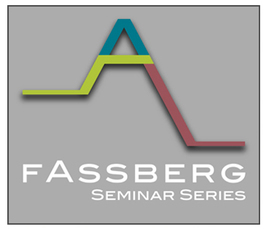Fassberg Seminar - ONLINE SEMINAR: Liver and pancreas organoids; their application to the study of tissue regeneration and disease
Fassberg Seminar - ONLINE SEMINAR
- Datum: 21.01.2021
- Uhrzeit: 13:00 - 14:00
- Vortragende(r): Meritxell Huch
- MPI of Molecular Cell Biology and Genetics (MPI-CBG), Dresden
- Ort: Max-Planck-Institut für biophysikalische Chemie (MPIBPC)
- Raum: Zoom Online Seminar
- Gastgeber: Dr. Melina Schuh
- Kontakt: tommaso.cavazza@mpibpc.mpg.de

In vitro 3D cultures are emerging as novel systems to study tissue development, organogenesis and stem cell behavior ex-vivo. My lab and I, we have developed organoid cultures from healthy and diseased, human and mouse, adult and embryonic tissues for a range of organs including stomach, liver and pancreas. These have allowed, for the first time, the long-term expansion of adult (stomach, liver and pancreas) and embryonic (liver) tissue into 3D-epithelial structures that we have termed organoids, since these (1) self-assemble and can be clonally expanded, (2) resemble the corresponding tissues-of-origin and (3) allow the study of some aspects of tissue physiology in a dish.
Here, I will present our liver and pancreas organoid work and summarize our findings on how this culture system is amenable for disease modeling and for the study of adult tissue regeneration in a dish. Briefly, our mouse and human liver and pancreas organoid culture system enables the long-term expansion of liver cells in vitro. The expanded cells are highly stable at the chromosome and genomic structure level, while single base changes occur at very low rates. By modifying the system, we recently established the first human liver cancer organoid culture system for modeling liver cancer ex-vivo and demonstrated its applicability for drug testing. Additionally, we have recently found that our organoid culture system enables the study of some aspects of liver regeneration in a dish, specially the activation of adult differentiated liver cells into bi-potent progenitors. We have found that the transition from the differentiated state to an active progenitor state involves global, yet transient, genome-wide epigenetic changes that are required for organoid formation and tissue regeneration.
In summary, clonal long-term expansion of liver and pancreas primary cells as organoid cultures opens up experimental avenues for disease modeling, toxicology studies, regenerative medicine and gene therapy.
Here, I will present our liver and pancreas organoid work and summarize our findings on how this culture system is amenable for disease modeling and for the study of adult tissue regeneration in a dish. Briefly, our mouse and human liver and pancreas organoid culture system enables the long-term expansion of liver cells in vitro. The expanded cells are highly stable at the chromosome and genomic structure level, while single base changes occur at very low rates. By modifying the system, we recently established the first human liver cancer organoid culture system for modeling liver cancer ex-vivo and demonstrated its applicability for drug testing. Additionally, we have recently found that our organoid culture system enables the study of some aspects of liver regeneration in a dish, specially the activation of adult differentiated liver cells into bi-potent progenitors. We have found that the transition from the differentiated state to an active progenitor state involves global, yet transient, genome-wide epigenetic changes that are required for organoid formation and tissue regeneration.
In summary, clonal long-term expansion of liver and pancreas primary cells as organoid cultures opens up experimental avenues for disease modeling, toxicology studies, regenerative medicine and gene therapy.